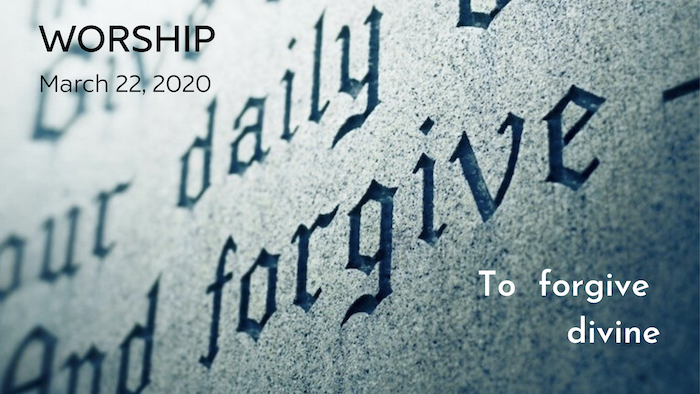
I lost my husband to cancer in 2016. I heard words like how "brave" I was and how "proud" people were of me—I felt the exact opposite. I felt like a fraud. The months leading up to his diagnosis were some of the toughest in our marriage. He stopped helping me out around the house and stopped helping with our infant—which made me resentful and angry.
We argued daily. He claimed "I just don't feel good."
I remember telling him, "I am tired of that excuse."
I told a coworker how frustrated I was and actually said the words, "I'm going to feel terrible if this turns out to be something serious."
A few days later, we found out that his symptoms were due to cancer. I told John, "I'm sooooo sorry—I should have listened to you."
He told me, "You are forgiven—a thousand times over." John forgave me, and yet over four years later I still struggle to forgive myself.
I am very capable of giving forgiveness to others. I don't stay mad at other drivers when they cut me off in traffic. I assume that friends or coworkers must have something more pressing going on in their lives if one of them is short with me. I live with a preschooler and a toddler—so I'm well adept at saying, "I forgive you" and meaning it. So why do I struggle so much with forgiving myself?
I realize my actual struggle is with guilt. I am a physician by trade—so I felt like I should have connected the dots and figured out John had cancer. (As a physician I do realize that even if I would have figured this out a few weeks earlier, the outcome would have still been the same.) I was his wife so I should have realized his change in behavior was more than just an ongoing argument.
I have found comfort in Psalms 32:5: "I acknowledge my sin to you, and I did not cover my iniquity. I said, 'I will confess my transgressions to the Lord,' and you forgave the guilt of my sin."
Christ died on the cross not only for my sin—but also for my guilt. Jesus suffered and died so that I may live.





